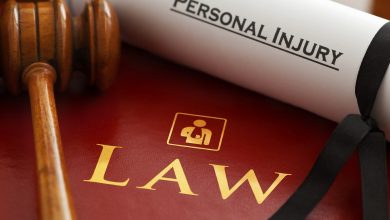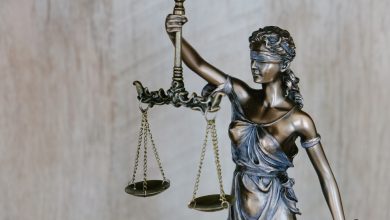How to Check My Criminal Record: When and Where to Look

Your criminal record is somewhat like a cheatsheet or an exam study guide. For instance, a work-related background check tells you what a potential employer knows (i.e. that you have a felony) and doesn’t know (such as the exact charges against you). After that, you can prepare for the job interview accordingly. In the same vein, a defendant who studies their record can directly address the prosecutor’s accusations. Otherwise, the suspect might unintentionally reveal self-incriminating details or new evidence. Yet many felons still scratch their head and say, “I don’t know how to check my criminal record or where to look for it.” This confusion is certainly justified.
Firstly, there are various types of background checks. That is to say, a job interviewer and a judge don’t ask you the same questions. Their criminal record screenings look for entirely different particulars. Secondly, a wide range of courts and government agencies hold your data. You have to identify each record and the respective entity that documented it. Thirdly, and perhaps even more importantly, can you trust non-government websites that conduct background checks? Is the information accurate and reliable?
In general, there are three ways to pull up your criminal record and background check. Both federal and state courts may give you your arrest history and specific case documents. Additionally, government bodies on different levels, including the FBI, offer this service. Several websites also conduct thorough and comprehensive criminal checks for subscribers. Each of those options has its own advantages and downsides. We will discuss them in more detail.
How to Check My Criminal Record During and After the Trial
It is significant to note that different types of data exist. What might be relevant during the trial could become useless after sentencing or dismissal. For instance, formulating a strong defense in court requires an expanded criminal record that includes potential connections and past convictions. After a judge dismisses the charges or you complete your prison sentence, you may want to look at criminal background checks that a potential employer or landlord will examine.
How to Check My Criminal Record During the Trial
Your records becomes important the moment that law enforcement arrest you. Firstly, your family/and or friends will need to post bail. The amount is directly tied to the official criminal charges against you. Secondly, in order for them to find you the right lawyer, family and friends must know what the government is prosecuting you for. Otherwise, they may waste time and consultation fees on an attorney that doesn’t specialize in your case type.
Above all else, before taking any action, you and your friends/family should get an official copy of the criminal record. Verbal information isn’t enough. Law enforcement could exaggerate the situation or take advantage of your ignorance to gather additional evidence. For instance, a burglar breaks into a house when the owners were at work. The victim’s neighbors called the police. Upon their arrival, the burglar left through the backdoor and hid behind the fence, without grabbing any items.
Eventually, the cops found the criminal and arrested them. Yet the officers didn’t know that the burglar entered the home, so they only made an arrest based on trespassing charges. After that, the now-active inmate called their brother and told them that they didn’t actually steal anything. When the brother went to the jail, they told officials that the arrestee never took or damaged the owners’ belongings that were in the house. However, the police were never aware that the suspect entered the home, to begin with.
More Charges and Problems
Consequently, the officers used the brother’s confession as evidence and added new charges (attempted burglary) to the inmate’s case. Since this is much more serious than trespassing, the bail amount also increased. Alternatively, if the burglar asked their brother to obtain a copy of the criminal record, they would’ve avoided this problem. To clarify, the brother could’ve only addressed the trespassing charges and paid the lower bail. Now, on the other hand, the arrested offender faces several accusations.
Equally as important, it is much more difficult to defend a burglary case than a trespassing one. The same logic applies to proffer agreements. These negotiations are confidential (i.e. the government can’t use any confessions that a felon makes against them). Nonetheless, prosecutors may trick a defendant who isn’t aware of what’s on their record or what they are accused of. That is to say, a suspect is more likely to accept an unfavorable proffer or plea bargain deal when the prosecution exaggerates the charges or facts.

How to Check My Criminal Record After the Sentence or Dismissal
Whether the court rules in your favor or against you, criminal records are still crucial. If a judge dismisses the accusations, your background check should reflect that you’re innocent. A more detailed analysis about correcting errors on your criminal record will follow. This is noteworthy because arrests and convictions can cost you your job and home. Having said that, what happens if the court finds you guilty?
In this scenario, felons have several options. All of them require an updated and accurate criminal record. Firstly, some people appeal unfavorable decisions, especially when they have strong evidence. Defendants that didn’t have a lawyer, for instance, may believe that an attorney could present their appealed case more effectively. Needless to say, your representative will want to carefully scrutinize every detail on your record. Similarly, many inmates hire a different lawyer during the appeal.
The new attorney also needs to study your background in order to formulate a strong defense. At times, suspects may face several charges, such as a DUI/DWI felony and a reckless driving misdemeanor. Depending on the complexity of each allegation, the court could decide for/against one charge, while continuing to hold hearings on the others. For example, a judge may find a defendant innocent of the DUI felony. Yet they will still investigate and evaluate the misdemeanor reckless driving charges until enough evidence is presented.
Here, your criminal record is useful when you hire more than one lawyer (for each accusation). Moreover, it is detrimental to prove to your employer, mortgage/auto lender, and/or landlord that the felony charges are dropped. After all, most companies have policies against hiring felons, but not misdemeanor offenders. Financial creditors and housing providers deploy similar policies. In our example, the defendant’s DUI/felony-free record allows them to retain their job, home, and car.
How to Check My Criminal Record After Release
Unfortunately, even when you serve your sentence in full, a felony conviction will continue to be burdensome. Similarly, if you successfully appeal and reverse a previous court decision, you still need to polish your record. Nonetheless, this problem is certainly solvable. Firstly, let’s assume that a judge initially find you guilty of a felony and sentences you to ten years behind bars. Six months after that, you file an appeal, present your defense in the retrial, and win. As a result, the court releases you from prison.
The felony doesn’t go away from your criminal record unless it’s corrected. In other words, successful appealers need to obtain official court records, present it to the law enforcement agency that charged them, and have them remove it from their background check report. This process is time-consuming, especially as you look for employment and housing. However, you will struggle to secure a job or home without an updated record that proves your innocence.
Looking the Other Way: How to Check My Criminal Record If I Go to Prison
Secondly, what happens if you don’t file an appeal or have an unsuccessful one? Initially, life after release revolves around stability. Some government programs and residential complexes specifically exist to house former felons. In addition, private corporations could also extend their hand to convicts who are looking for work. You can prove that you’re a former felon through a court or government-certified criminal record.
Just as importantly, several businesses and landlords could look the other way if you have a nonviolent felony (such as drug possession). Yet each of an employment and housing background check screens for different information. They also rely on vendors that particularly cater to their needs. For example, HR departments go through platforms that provide a job applicant’s work history, past firings (if any), and LinkedIn/social media profiles. Some background check providers only look for federal criminal records, but others identify state and local violations.
When you get a copy of your criminal record from a private firm, you will know what it reveals to potential employers. It could show that you have a felony, but without mentioning any additional details. Subsequently, when you go to the job interview, you could bring in documents to prove that your offense was nonviolent. As a result, a lenient employer may offer you the position. In the same vein, several landlords might make an exception when they understand that you didn’t injure or harm any victims.

How to Check My Criminal Record: Three Ways
How to Check My Criminal Record Through a Non-Government Source
While certain record-providers work with employers, landlords, and credit/loan issuers, some offer general background checks. That is to say, these companies will obtain a wide range of details about you, including criminal and civil records. Based on the vendor that you go through, non-government background checks may cover speeding tickets, bankruptcy filings, assets, affiliates/relatives, and bank liens. Intelius, as an instance, generates reports that encompass a person’s educational history, alongside their finances, residential address, and criminal background.
Other examples of these vendors are US Search, BeenVerified, PeopleFinders, and Instant Checkmate. The main advantage to going through a non-government criminal record provider is that they utilize a wide range of databases and sources of information. For instance, websites like BeenVerified and Intelius will look for local, state, and federal court records. They also screen your social media pages, marriage records, child/birth certificates, and more. The downsides, meanwhile, are related to the timeliness and accuracy of these reports.
This is even more significant if you recently got arrested. One background check supplier may reflect that, but the others could take longer to update. Moreover, the records that non-governmental entities gather can be incomplete. Arrest dates, case outcomes, and additional specifics are potentially inaccurate. Having said that, this doesn’t apply to the criminal records that employers, financial lenders, and housing providers access. In a similar manner, your credit check only contains official and accurately-verified details.
How to Check My Criminal Record Through the Courts
Public Access to Court Electronic Records (PACER) is a federal database of criminal cases and related documents. In fact, if a suspect doesn’t know which court will hear their case, they can identify the right one through PACER. Any member of the public can request documents online, via phone, or by mail. You can obtain essential or basic records (sentencing, indictments, and probation order, to name a few examples) related to closed and ongoing cases. Docket sheets (which give you the overview and summary of the case) are also publicly available.
Above all else, you still have the right to view all of the documents and files in a federal court case. Yet you also have to pay more fees when you ask for additional details. To clarify, PACER will charge you ten cents for each page that you access, whether its online or in print. Bear in mind that court cases last for months, if not years. The pages will contain every motion, postponement, bench interview, piece of evidence, and more. Just as noteworthy, another fifteen dollar payment is required to formally certify the documents.
As far as state courts are concerned, each jurisdiction sets its own laws regarding public information and criminal records. Many states provide them for free, although they could be limited. For instance, their database could only contain basic particulars, such as the defendant’s name, the charges, and the date of the court hearing. Other than that, the judge’s ruling, filed motions, and in-depth developments may or may not be available, depending on the state and/or locality.
How to Check My Criminal Record Through the Government
Every law enforcement agency oversees a specific case type. The Department of Justice handles prosecutions, while the Department of Corrections documents crimes that take place behind bars. The Drug Enforcement Agency (DEA) investigates offenders who illegally smuggle and distribute controlled substances. In short, if you want your federal criminal record, ask the government entity that accused and/or arrested you. The same applies to corrections and document verifications, whether its after release or a successful appeal.
However, in order to obtain a comprehensive background check, felons should contact the Federal Bureau of Investigation (FBI). The FBI’s sweeping report collects reports from the federal and state levels. Moreover, they compile records from both court and law enforcement documents. Equally as important, unlike private background check providers, the FBI’s data is unquestionably timely, accurate, and reliable. Yet the Bureau’s reports also have their own flaws.
Firstly, requesters need to pay an eighteen dollar fee. After that, if the submission was made online, they must wait up to five days to get the background check. Mailed requests could take four weeks for the FBI to processes them. Secondly, in order to access criminal records, individuals must have their fingerprints taken and identity verified. Thirdly, the FBI doesn’t correct errors. Instead, the government entity that reported inaccurate or outdated information must modify these mistakes. Subsequently, the Bureau will update their records.
How to Check My Criminal Record for Free
Whether you go through a private entity, PACER, or the FBI, obtaining your background check costs money. Non-governmental providers charge separate fees. A BeenVerified subscription, as an example, is almost twenty-three dollars per month. Instant Checkmate’s is thirty-five dollars. Each of PeopleFinders, Intelius, and US Search have a monthly price-tag of almost forty dollars. While these private entities’ services are more expensive than PACER and the FBI, they allow users to immediately access their records (without submitting any fingerprints or having to wait for several days).
Having said that, certain individuals and felons may qualify for an exemption. To clarify, courts and government entities could give you your background check for free. PACER will remove their fees if your court documents and requested number of pages cost less than thirty dollars during a three-months period. Similarly, when you work with a nonprofit attorney or representative, they may get your records from PACER without incurring any charges. In the same vein, the FBI will abolish their fees when you fill out a waiver form. However, you would also need to submit a notarized affidavit of indigence (i.e. extreme poverty) alongside the waiver request.

How to Check My Criminal Record Efficiently and With a Purpose
Either way, your background check and criminal record are certainly worth it. By accessing them, you will make your life much easier throughout the entire litigation process. An online vendor gives you an immediate overview of what to expect, while an employment/housing background report and a credit check enable you to take care of basic living necessities. Equally as important, felons should get a criminal record that contains what government agencies and courts on different levels are reporting.
You may be thinking to yourself: I don’t know how to check my criminal record or where to look. A good place to start would be to contact the enforcement entity that arrested you and/or the court that will hear your case. Above all else, defendants must identify the information that is appropriate for each venue (job interview, trial, appeal, etc.). You don’t want to bring a biology cheatsheet or study guide to a history exam, especially because the consequences of pass or failing a criminal background check are much more detrimental.



